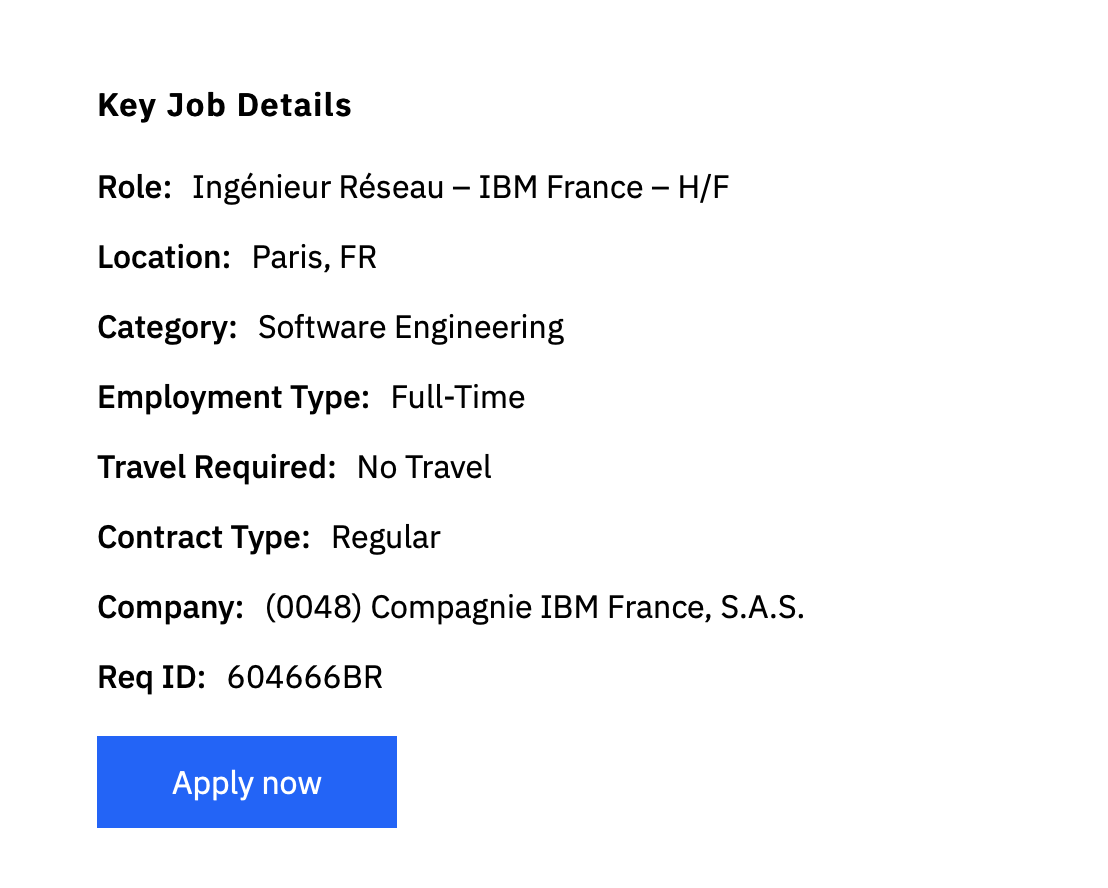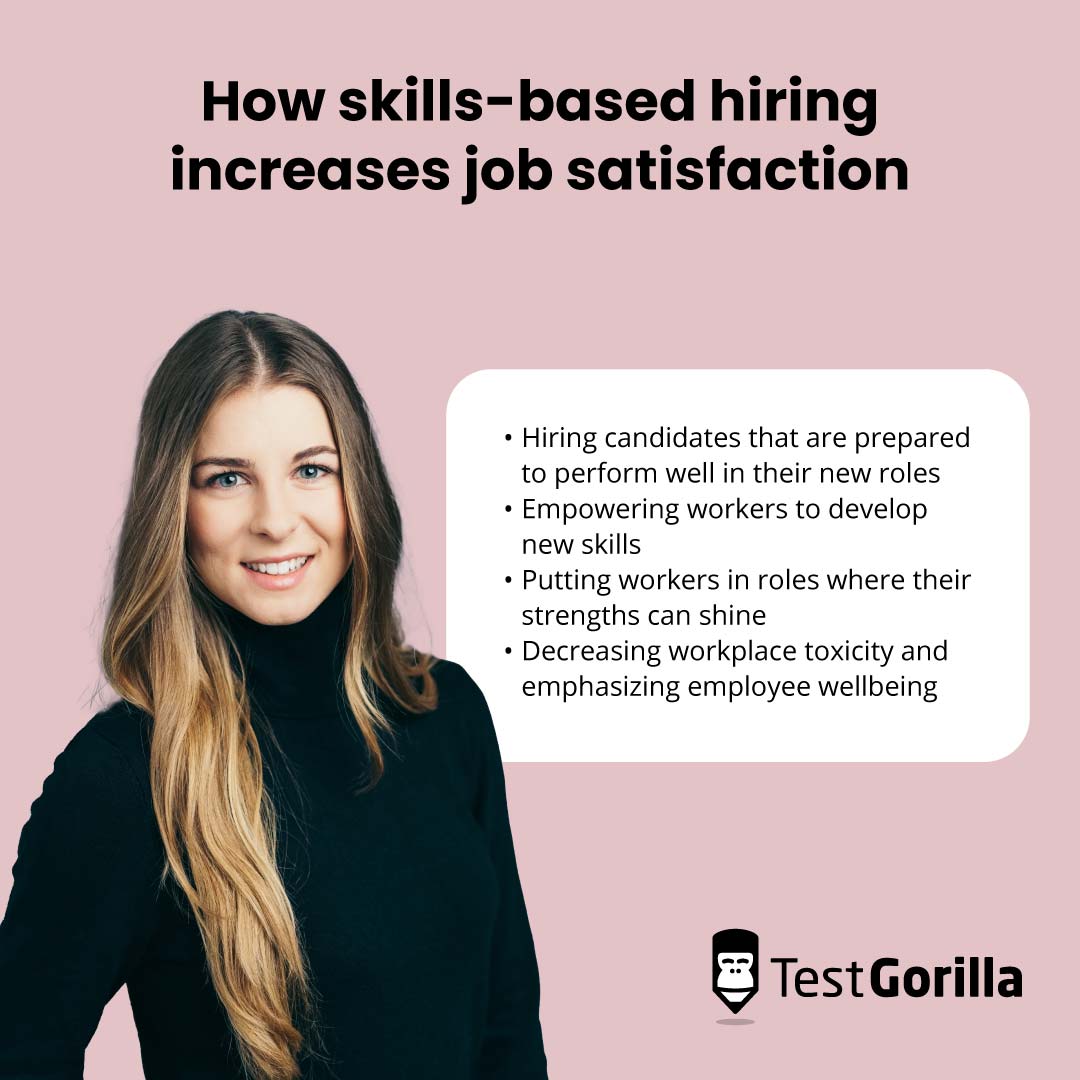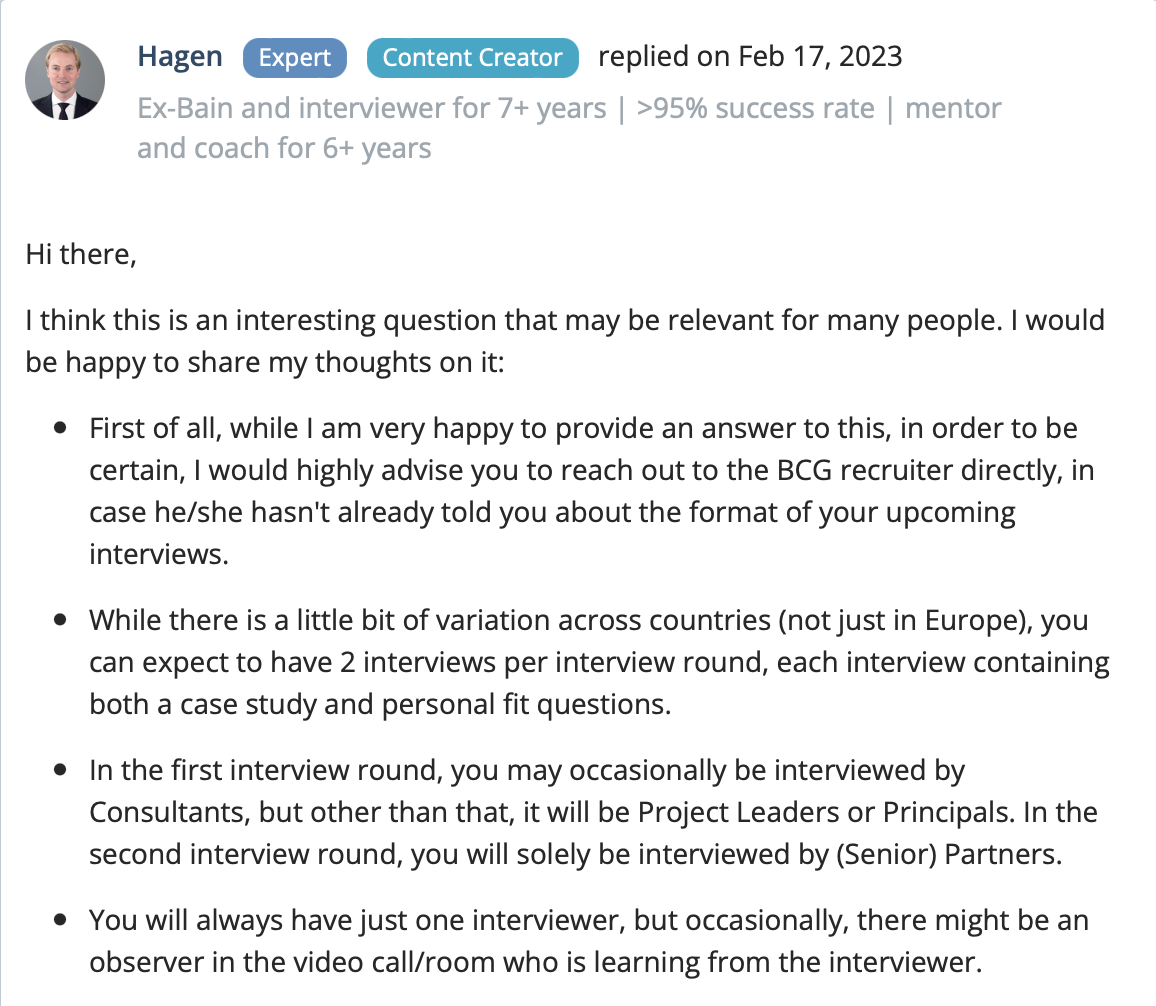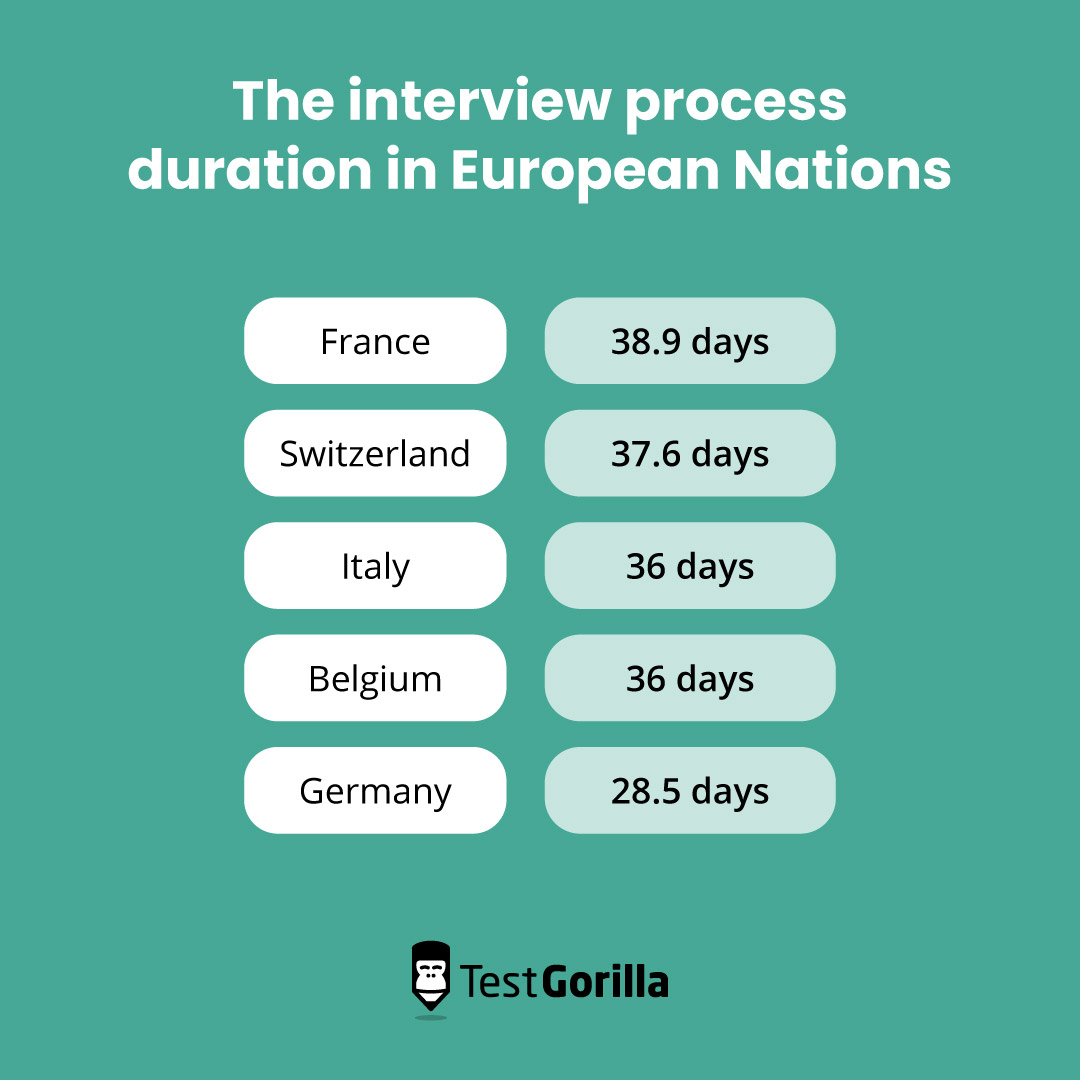How skills-based hiring is a game-changer for Europe and the UK
Skills-based hiring has proven to be revolutionary for companies in countries around the world, ensuring they can locate, hire, and develop talented workers.
But not all countries have fully adopted skills-based hiring, if at all.
The consequences of relying on traditional hiring practices include failing to fill important vacancies with skilled workers, missing out on or driving away diverse talent, improperly upskilling, and burning out existing employees.
For example, the European Union’s talent mismatch problem and the UK’s talent shortage are tightening the labor market, with companies relying on outdated and biased hiring practices to fill the gaps.
Some companies, mainly in the tech industry, are implementing some skills-based hiring practices with mixed feedback from workers. But most European and UK companies are not going far enough.
To be successful, hiring for skills requires a holistic process with an organizational commitment to tools, like skills assessments and structured interviews, and the elimination of traditional education requirements.
This article examines the UK and Europe’s labor market struggles and how going all-in on skills-based hiring can get businesses back on track.
Europe’s mismatch problem
The massive humanitarian crisis caused by Russia’s invasion of Ukraine, rising inflation, and fear of layoffs have all made attracting and retaining top-tier talent increasingly difficult in Europe.
In fact, the talent shortage trends in the US are virtually the same as in the EU. Companies are struggling to find and hire the workers they need, while current employees are also heading for the door.
However, according to McKinsey director Mona Mourshed, the mismatch between young employees’ skills and the needs of employers presents a profound and unique challenge for Europe.[1]
Specifically, the education system is taking the brunt of the blame for not providing adequate skills training for what European companies need to succeed.
This has resulted in a series of skill and talent gaps that are threatening the EU’s competitiveness in multiple fields:
Education: EU countries like Germany, France, Portugal, Sweden, and Italy are struggling to hire and retain teachers[2]
Healthcare: According to a WHO/Europe report, 40% of medical doctors are close to retirement in one-third of countries in Europe and Central Asia[3]
Technology: According to a 2022 DESI report, only 54% of Europeans aged between 16–74 have at least basic digital skills:
Let’s take a look at Germany as an example. This EU nation is likely to experience some of the biggest slowdowns in growth in the next decade.
Its population is aging, threatening its economic expansion and productivity. By 2030, there will be more 65-year-old employees in Germany than 20-year-olds.[4]
The country is also scrambling to make up for energy gaps now that the war in Ukraine has dramatically changed its economic relationship with Russia.
The labor shortage in the energy sector for wind and solar jobs is not closing the gap: Around 216,000 skilled workers are needed to fill important jobs in these two sectors alone.[5]
This isn’t making Germany’s historic labor shortages any easier to handle. Despite having the largest labor force since reunification in 1990, Germany is still short of nearly 800,000 people needed to fill its current job vacancies.[6]
Immigration has played a role as well.
Even with an excess of job openings and an influx of migrant workers, Germany is struggling to properly locate and train candidates with upskilling potential.
The unemployment rate for migrants is 12%, but it’s less than 5% for German nationals. The main issue is qualifications. Only about one-third of Germany’s Syrian migrants have graduated from high school or technical school.[7]
The nature of Germany’s labor market, which protects its incumbent workers, demands time-consuming training efforts and often ignores the validity of foreign degrees, has contributed to its talent mismatch problem.
Skills-based hiring in the EU
It’s important to note that the EU’s mismatch problem is not going unaddressed, and skills are at the center of that effort.
Many EU governments are intervening to prioritize skills by offering:
Digital skills training for students and job seekers: The French Digital and Jobs Coalition, for example, aims to meet the needs for digital literacy in the French labor market.[8]
Skills training programs for fresh workers: The Austrian vocational education and training program entitles each young person to enter an apprenticeship and guarantees training opportunities.[9]
Skills training in the construction sector: More emphasis is being placed on the skills needed for sustainable new construction and commercial buildings across the EU.[10]
The Pact for Skills: A major initiative of the European Skills Agenda aims to support public and private organizations with upskilling and reskilling existing workers to close skills gaps.[11]
The EU’s focus on training job seekers on the skills they will need to get hired is a great step forward to addressing the talent problem.
But are EU companies following the lead of the US and hiring for skills?
Yes and no.
European countries are extremely diverse, with specific markets and industries that vary in size and scale from country to country, community to community.
Larger multinational companies like Google and IBM have dropped degree requirements in favor of skills assessments and have offices and labs across Europe that have skills-based job postings, like this Network Reliability Engineer job opening in Paris, France:
The responsibilities for this role include:
Providing incident and management services
Troubleshooting
Network testing
Planning, scheduling, and implementing network modifications
Although technical expertise and experience are required, there is no mention of degrees or education requirements.
SAP is the leading German multinational software company based in Walldorf, Germany. This job posting is for a Tech Lead on their Berlin CloudOS team:
Again, there is no mention of degree or education requirements. Instead, the focus is on tangible skills that can be easily tested with multi-measure, pre-employment assessments.
On the other hand, smaller businesses outside of the technology sectors tend to rely on traditional hiring practices that require degrees and experience.
According to Angela Briggs-Paige, SHRM-SCP, head of people and culture at the nonprofit Opportunity@Work, companies who are wary of skills-based hiring tend to make two false assumptions:
They overestimate the percentage of candidates with degrees.
They assume that if you don’t have a degree, then you don’t have skills.
Larger, tech-based organizations do not make these assumptions and are often the leaders in skills-based hiring (check out this report – Talent over titles: Can skills-based hiring transform tech recruitment?). Smaller businesses in Europe (and globally) are lagging behind.
Hiring takes too long in Europe
According to a report for CEPS, hiring for skills is recognized by companies, individuals, and governments as a critical growth factor.
However, skills-based hiring appears to only be occurring in large companies to target highly educated workers.[12]
The report also notes a key challenge for the future: Making sure that young people who are about to enter the labor market have the right skills to thrive in a digital and green economy.
Yes, the educational system and job training policies are partially responsible for addressing skills gaps and preparing new workers, but these efforts should also be industry-led.
The companies that need the skills the most need to know how to:
Foster and create opportunities for workers to learn skills
Effectively locate and hire talented workers with the right skills
An area where companies are falling short in their hiring process is time-to-hire.
In the EU, the hiring process can take three to six months.[13]
What’s taking so long? Mainly, the interview process. According to Glassdoor, the average interview process in the US lasts approximately 24 days.[14]
In Europe, the interview process takes much longer:
EU Nation | Interview process duration |
France | 38.9 days |
Switzerland | 37.6 days |
Italy | 36 days |
Belgium | 36 days |
Germany | 28.5 days |
To be clear, labor laws are quite different in the EU, causing hiring to take longer. But even with these regulatory slowdowns, skills-based hiring can drastically reduce interview time and overall time-to-hire.
Skills-based hiring uses structured interviews that eliminate bias, increase hiring speeds, and accurately predict job success.
A structured interview consists of pre-established questions that are asked of every candidate in the same order.
Structured interviews are much quicker than free-flowing, unpredictable, unstructured interviews. In addition to time saved, structured interviews are one of the most reliable predictors of job success.[15]
There are some EU-based companies that are using structured interviews to hire candidates. Take BCG Europe, for example, whose interview process typically has one behavioral interview and one situational interview.
Take a look at this example of a seasoned interviewer explaining the general interview process for BCG Europe:
As Hagen explains, there is some variation across different European countries, but structured interviews are gaining prominence.
Skill-based interviews like these focus on what really matters: whether the candidate has the skills to do the job.
Bias in Europe’s hiring processes
Structured interviews can also reduce bias in the hiring process by relying on standard questions that have nothing to do with identity and everything to do with skills.
That’s good news for a lot of European workers and employers when bias in the hiring process has become a significant problem in the wake of increased immigration across Europe.
According to a poll conducted by CoderPad, 65% of tech recruiters believe there is bias in their hiring processes.[16]
Migrant workers and ethnic minorities have a much higher unemployment rate and are underrepresented in higher-level jobs.
Research suggests bias and discrimination are the leading causes of this employment disparity.[17]
In Belgium, for example, candidates with foreign-sounding names have a 30% less chance of being invited to interview compared to candidates with a similar skills profile but Flemish-sounding names.
In France, the unemployment rate for women of color is higher than for White women because of bias against their education, social, and ethnic backgrounds.
In Denmark, immigrants and ethnic minorities are funneled into lower-paying jobs in sectors like trade, transport, and hospitality.
Bias and discrimination in hiring are not only unethical but also bad for business.
In fact, companies with more diverse executive teams were 35% more likely to create above-average profits and nearly 20% higher revenue.[18]
Skills-based hiring locates, hires, and develops diverse talent to increase productivity and innovation.
Our data bears this out: The State of Skills-Based Hiring 2022 found that 91.1% of companies who implemented skills-based hiring practices, like skills assessments, reported an increase in diversity.
The rise of quiet hiring
Quiet hiring is essentially upskilling existing employees to address skills gaps facing organizations, rather than hiring new employees for the position.
Upskilling is when employers help employees gain new skills that complement their existing skills to take on additional responsibilities.
Quiet hiring is not unique to Europe, but it’s been emphasized recently in 2023 to address the mismatch problem and overall talent shortages in specific industries like tech, green energy, and healthcare.[19]
If done correctly, upskilling can benefit both the employee and the employer.
Employee benefits of upskilling | Employer benefits of upskilling |
Employee gains valuable hard and soft skills training to advance in their career | Employee upskilling boosts individual performance to increase productivity and profitability |
Employee is promoted within the organization and can retain the position for the long term | Employee grows within the organization to reduce turnover and hiring costs |
Employee becomes more attractive to other companies if they decide to switch organizations in the future | Employee fills existing and future skills gaps from |
Increased job satisfaction from | Employee engagement helps build a healthy workplace, boosts team morale, performance, and productivity |
When it comes to quiet hiring and upskilling, companies should be careful not to overwork or exploit their employees, who are already experiencing high levels of burnout.
For example, a survey by Statista in 2021 found that Poland tops the list for employee burnout among European countries, with 66% reporting feeling burnt out or close to it.[20]
Upskilling and employee development should be catered to the individual worker’s needs in areas that will help grow your business.
How do European workers feel?
European workers have mixed feelings about skills-based hiring practices like skills tests.
The EU’s recent move to all-digital skills tests for hiring has been met with criticism from some applicants.[21]
Candidates who are opposed say that the EU’s implementation of remote skills assessments:
Cost money to complete due to hardware
Are prone to frustrating glitches
Are overseen by unresponsive American test providers
Violate equal opportunity and increase inequality
This particular rollout of remote skills tests may violate equal opportunity because not all candidates have access to the same devices to complete tests. Only hiring employees that have access to particular devices is biased against those above a particular economic class and excludes many skilled candidates who are unable to complete assessments.
Skills-based hiring that is executed properly takes into account the diverse backgrounds of all candidates by offering mobile skills tests, for example.
With 89% of jobseekers agreeing that mobile phones are crucial to their job search, offering mobile skills tests can locate talent from different class demographics who have valuable skills and untapped potential.[22]
Skills-based hiring uses equitable and effective pre-employment assessments that can be accessed by anyone who has access to WiFi and the skills to do the test.
Workers have every right to be frustrated with a hiring process that makes them jump through hoops to show they have the requisite skills to do the job.
Europeans who have jobs aren’t much happier with their work life either.
A 2022 Gallup study also found that only 14% of employees are engaged at work, a figure that is 19 points lower than the US.[23]
This is not a great sign when considering how crucial employee engagement is to organizational success.
Research shows that disengaged employees can cost companies nearly $550bn a year collectively.[24]
What’s causing employee disengagement in the EU?
Nearly three-quarters of the variance in team engagement depends on who’s in charge. In other words: Europe has a management problem.
For example, 97% of German managers say they think they are good managers, and 69% of German employees think they have bad managers.[25]
What’s shocking about this management problem is that even though German managers recognize their skills gaps, 60% of them say they have never received people management skills training.
According to the McKinsey report in 2015, there was a crisis-level youth unemployment rate, with 5.6 million young people (25 and under) out of work in the EU.[26]
Less than a decade later, that number has only shrunk slightly, hovering around 5 million.[27]
Skills-based hiring is more than finding skilled candidates; it keeps them engaged once they start working.
In fact, our State of Skills Based Hiring 2022 also found that 72.1% of people hired via skills-based hiring practices are happy in their roles.
As opposed to traditional hiring methods, skills-based hiring can improve the candidate experience for EU workers by increasing hiring speeds, eliminating bias, and giving candidates an accurate picture of what the job will entail.
Nearly half of EU adult workers have seen the technologies they’ve used change since they started their job, and 21% feel it is very likely that several of their skills will become obsolete in the next five years.[28]
To keep workers engaged and up-to-date on skills, European employers should build professional development plans for employees and invest in training opportunities.
It’s crucial that EU companies listen to their workers to understand exactly where their skills gaps are or may appear in the future to increase retention, productivity, morale, and organizational growth.
The best insights on HR and recruitment, delivered to your inbox.
Biweekly updates. No spam. Unsubscribe any time.
Skills-based hiring in the UK
Research from Remote reveals that skills-based hiring has increased by 63% in the UK since 2022.[29]
Education is becoming less important to UK employers who are looking for a competitive edge in a tightening labor market where talent is difficult to come by.
In Northern Ireland, for example, a 2019 report showed that 22% of all vacancies were due to candidates lacking the specific skills needed to do the job.[30]
This problem is exacerbated by the gender employment gap in sectors like construction, with gender bias keeping talented women out of jobs that need to be filled.
The wider gender employment gap remains an issue for the UK as well. A UK Parliament report shows that the employment gap between male and female employment rates was 6.7% from October–December 2022.[31]
Racial bias in hiring and the workplace are also exacerbating the talent and skills shortages in the UK job market.
Although the UK has moved closer to a skills-based hiring model, there’s still plenty of work to be done.
The UK’s employment problem
For UK companies in the low-skill economy, Brexit was a big blow to the labor force. In fact, the UK lost nearly 330,000 workers as a result.[32]
While skills-based hiring is on the rise in the UK, businesses are still suffering from:
High number of vacancies: According to ONS, 13.3% of businesses reported a shortage of workers, with hospitality (35.5%) and construction (20.7%) having the most vacancies.[33]
Skills shortages: More than three-quarters of small businesses face difficulties recruiting skilled talent.
Covid-19 Pandemic’s impact: Employment is below pre-pandemic levels due to economic inactivity – people not working and not looking for work.
Brexit: New immigration rules may have made the situation worse by eliminating migrant work opportunities. For UK companies in the low-skill economy, Brexit was a big blow to the labor force.
The UK’s bias problem
Nearly half of Black and minority workers in the UK experience bias in the workplace.[34]
For younger workers, the number is even higher at 52% for Black and minority workers aged 25 to 34 years old and 58% for those between the ages of 18 and 24.
Discrimination of this caliber is deeply disturbing on a human level, but it is also a nightmare for the UK’s talent and skills shortage.
According to a Survey from TUC, more than 120,000 minority workers quit their jobs because of racism in the workplace.[35]
Not only is enforcing biases ethically wrong, it:
Is bad for your brand
Risks paying out settlements
Misses out on the benefits of diversity and inclusion
Biased treatment of employees in the workplace strongly suggests that some UK companies’ hiring practices are not making strong efforts to be more inclusive.
A full commitment to skills-based hiring practices will widen the UK’s talent pool to include candidates from all walks of life. This commitment will also transform the workplace culture to emphasize employee wellbeing.
By eliminating bias-prone hiring metrics like degree requirements and resumes while using unstructured interviews, UK companies can accomplish two crucial tasks at once:
Filling desperately-needed jobs with diverse talent
Retaining talent by creating an inclusive, healthy, and increasingly productive workplace
How do UK workers feel?
Many UK job-seekers and workers are not happy with the current job market.
The combination of biases, rising inflation, the cost of living, budget cuts, and the employment problem have all increased employee burnout, stoked anger, and led to industry-halting conflicts like the recent worker strike in February 2023, where half a million workers walked out demanding benefits and higher pay.[36]
According to research from PwC, job dissatisfaction was highest among non-managers, but improved up the seniority ladder.
This has created a polarization in the workforce where 51% of high-level employees reported being satisfied at their work but only 19% of non-management employees reporting the same.[37]
Skills-based hiring has proven to increase job satisfaction by:
Hiring candidates that are prepared to perform well in those roles.
Empowering workers to develop new skills
Putting workers in roles where their strengths can shine
Decreasing workplace toxicity and emphasizing employee wellbeing
With our research showing 69.3% of males and 76.2% of females expressing satisfaction in their roles with skills-based hiring, the UK will benefit from ditching traditional hiring practices for good.
Reverse mentoring, for example, is a great skills-based hiring strategy to empower junior-level employees with networking opportunities, leadership skills, and confidence by mentoring senior-level employees.
Skills-based hiring leverages the satisfaction and engagement of workers to achieve their individual developmental goals, not in spite of organizational growth, but to ensure it.
Go all-in on skills-based hiring
In the US, skills-based hiring practices have proven to increase productivity, profitability, and employee satisfaction while decreasing turnover.
With Europe experiencing a concerning level of unemployment and talent shortages, as well as a mismatch problem, integrating skills-based hiring into industries beyond the tech giants is crucial for organizational success.
The rise of upskilling in Europe is a positive sign, but these initiatives must be designed with the worker’s needs and desires at the center, not to exploit them.
In the UK, the exodus of workers due to Brexit, toxic workplace culture, hiring biases, and employee burnout are pressing issues making securing talent even harder.
Although there has been an increase in industries adopting skills-based hiring in the UK, many positive effects have not been felt.
A full commitment to skills-based hiring will eliminate bias and discrimination with:
Pre-employment tests helping companies focus on skills rather than identity
Structured interviews measuring future performance objectively
Employee development programs providing support in the workplace
Next, read more about the many business benefits of skills-based hiring, no matter the country.
Sources
Coughlan, Sean. (January 13, 2014). “Skills Gap ‘Damaging Young and Employers Across Europe’”. BBC. Retrieved June 1, 2023. https://www.bbc.com/worklife/article/20230203-stress-anxiety-global-layoffs
“Teacher Shortages Worry Countries Across Europe”. (November 30, 2023). Euronews. Retrieved June 1, 2023. https://www.euronews.com/my-europe/2022/11/30/teacher-shortages-worry-countries-across-europe
“Ticking Timebomb: Without Immediate Action, Health and Care Workforce Gaps in the European Region Could Spell Disaster”. (September 14, 2022). World Health Organization. Retrieved June 1, 2023. https://www.who.int/europe/news/item/14-09-2022-ticking-timebomb–without-immediate-action–health-and-care-workforce-gaps-in-the-european-region-could-spell-disaster
“In 2030, There Will Be More Over 65 Year Olds in Employment Than Under 20 Year Olds”. (November 2, 2020). Statistisches Bundesamt (Destatis). Retrieved June 1, 2023. https://www.destatis.de/EN/Press/2020/11/PE20\_436\_12411.html;jsessionid=0D5E8AC102AF39DDF0BCEC6C64360920.live711
Martinez, Maria; Alkousaa, Riham. (April 20, 2023). “Learn By Doing, German Renewables Companies Bid to Beat Labour Shortage”. Reuters. Retrieved June 1, 2023. https://www.reuters.com/business/energy/learn-by-doing-german-renewables-companies-bid-beat-labour-shortage-2023-04-20/
“Labour – Other Labour Market Measures: Job Vacancies: Total: Unfilled Vacancies (Stock) for Germany”. (May 10, 2023). Federal Reserve Economic Data. Retrieved June 1, 2023. https://fred.stlouisfed.org/series/LMJVTTUVDEM647N
Fairless, Tom. (December 12, 2022). “Germany Is Short of Workers, but Its Migrants Are Struggling to Find Jobs”. Wall Street Journal. Retrieved June 1, 2023. https://www.wsj.com/articles/germany-is-short-of-workers-but-its-migrants-are-struggling-to-find-jobs-11670844930
“France – Digital Skills and Jobs Coalition”. (July 22, 2022). EU Digital Skills and Jobs Platform. Retrieved June 1, 2023. https://digital-skills-jobs.europa.eu/en/about/national-coalitions/france-digital-skills-and-jobs-coalition
“Vocational Education and Training in Europe”. (August 2021). European Centre for the Development of Vocational Training. Retrieved June 1, 2023. https://www.cedefop.europa.eu/en/tools/vet-in-europe/systems/austria-u2
“Changing Labour Markets – How to Prevent a Mismatch Between Skills and Jobs in Times of Transition”. (May 4, 2023). Eurofound. Retrieved June 1, 2023. https://www.eurofound.europa.eu/sites/default/files/ef\_publication/field\_ef\_document/ef23047en.pdf
“European Skills Agenda”. (August 3, 2021). European Commission. Retrieved June 1, 2023. https://ec.europa.eu/social/main.jsp?catId=1223
Alcidi, Cinzia; Baiocco, Sara; Corti, Francesco. (2021). “A Renewed EU Approach For Jobs and Skills Towards a Resilient and Sustainable Post-Pandemic Recovery”. Centre for European Policy Studies. Retrieved June 1, 2023. https://www.ceps.eu/wp-content/uploads/2021/07/Jobs-skills-CEPS-TF-WGR.pdf
Kontos, Nikos. (March 2, 2020). “Europe’s Got Talent I: Five Ways Recruiting a Team in Europe Differs from the US”. Blue Matter Consulting. Retrieved May 12, 2023. https://bluematterconsulting.com/recruiting-differences-europe-us/
Chamberlain, Andrew. (August 9, 2017). “How Long Does it Take to Hire? Interview Duration in 25 Countries”. Glassdoor: Economic Research. Retrieved May 12, 2023. https://www.glassdoor.com/research/time-to-hire-in-25-countries/
Schmidt, F. L.; Zimmerman, R. D. (2004). “A Counterintuitive Hypothesis About Employment Interview Validity and Some Supporting Evidence”. Journal of Applied Psychology, 89(3), 553–561. Retrieved May 12, 2023. https://doi.org/10.1037/0021-9010.89.3.553
“CodinGame & CoderPad Tech Hiring Survey 2022”. (2022). CoderPad. Retrieved June 1, 2023. https://www.codingame.com/work/codingame-coderpad-tech-hiring-survey-2022/
“Racism & Discrimination in Employment in Europe 2013-2017”. (2017). European Network Against Racism. Retrieved June 1, 2023. https://ec.europa.eu/migrant-integration/sites/default/files/2018-07/ENAR\_Shadowreport\_2013\_2017.pdf
Hunt, Vivian Dame, et al. (January 1, 2015). “Why Diversity Matters”. McKinsey & Company. Retrieved May 12, 2023. https://www.mckinsey.com/capabilities/people-and-organizational-performance/our-insights/why-diversity-matters
El Atillah, Imane. (April 20, 2023). “What Is ‘Quiet Hiring’ and Why Is It Trending in the Workplace?”. Euronews. Retrieved June 1, 2023. https://www.euronews.com/next/2023/04/20/what-is-quiet-hiring-and-why-is-it-trending-in-the-workplace
Stewart, Conor. (May 31, 2022). “People Who Experienced or Were Close to Burnout in European Countries in 2021”. Statista. Retrieved June 1, 2023. https://www.statista.com/statistics/1249649/experiences-of-burnout-in-europe/
Sorgi, Gregorio; Wheaton, Sarah. (February 18, 2023). “EU Shift to Online Recruitment Sparks Outrage”. Politico. Retrieved June 1, 2023. https://www.politico.eu/article/eu-eurocrats-exam-brussels-bubble-shift-to-remote-assessment-sparks-outrage/
“5 Global Stats Shaping Recruiting Trends”. (February 1, 2017). Undercover Recruiter. Retrieved June 1, 2023. https://theundercoverrecruiter.com/global-stats-recruiting-trends/
“State of the Global Workplace: 2022 Report”. (2022). Gallup. Retrieved June 1, 2023. https://www.gallup.com/workplace/349484/state-of-the-global-workplace.aspx
Bolden-Barrett, Valerie. (March 8, 2017). “Study: Disengaged Employees Can Cost Companies Up to $550b a Year”. HR Dive. Retrieved May 12, 2023. https://www.hrdive.com/news/study-disengaged-employees-can-cost-companies-up-to-550b-a-year/437606/
Clifton, Jon; Sinyan, Pa. (June 23, 2022). “Europe Gets Life Right, but Work Wrong”. Gallup. Retrieved June 1, 2023. https://www.gallup.com/workplace/393794/europe-gets-life-right-work-wrong.aspx
Mourshed, Mona. (January 1, 2014). “Education to Employment: Getting Europe’s Youth into Work”. McKinsey & Company. Retrieved May 12, 2023. https://www.mckinsey.com/industries/education/our-insights/converting-education-to-employment-in-europe/.
(August 2022). “Youth Unemployment”. Eurostat. Retrieved June 1, 2023. https://ec.europa.eu/eurostat/statistics-explained/index.php?title=Youth\_unemployment&oldid=590877#:/
“Matching Skills and Jobs in Europe”. (February 2, 2015). European Centre for the Development of Vocational Training. Retrieved June 1, 2023. https://www.cedefop.europa.eu/en/publications/8088
Cook, James. (August 1, 2022). “Skills-based Hiring Rose 63% in the Past Year”. Business Leader. Retrieved June 1, 2023. https://www.businessleader.co.uk/skills-based-hiring-rose-63-in-the-past-year/
Winterbotham, Mark, et al. (March 23, 2021). “Employer Skills Survey 2019: Wales Report”. IFF Research. Retrieved June 1, 2023. https://www.gov.wales/sites/default/files/statistics-and-research/2021-03/employer-skills-survey-2019-wales-report.pdf
Buchanan, Isabel; Pratt, Alison; Francis-Devine, Brigid. (March 3, 2023). ”Women and the UK Economy”. House of Commons Library. Retrieved June 1, 2023. https://researchbriefings.files.parliament.uk/documents/SN06838/SN06838.pdf
O’Carroll, Lisa. (January 17, 2023). “Shortfall of 330,000 Workers in UK Due To Brexit, Say Thinktanks”. The Guardian. Retrieved June 1, 2023. https://www.theguardian.com/politics/2023/jan/17/shortfall-of-330000-workers-in-uk-due-to-brexit-say-thinktanks
Rabaiotti, Gemma. (May 18, 2023). “Business Insights and Impact on the UK Economy”. Office for National Statistics. Retrieved June 1, 2023. https://www.ons.gov.uk/economy/economicoutputandproductivity/output/datasets/businessinsightsandimpactontheukeconomy
Nabbi, Zayn; Cooban, Anna. (September 1, 2022). “41% of Black and Minority Workers in the UK are Suffering Racism on the Job”. CNN Business. Retrieved June 1, 2023. https://www.cnn.com/2022/09/01/business/uk-workplace-racism/index.html
Booth, Robert. (August 31, 2022). “More Than 120,000 Workers Quit Jobs Because of Racism, UK Study Suggests”. The Guardian. Retrieved June 1, 2023. https://www.theguardian.com/world/2022/sep/01/more-than-120000-workers-quit-jobs-because-of-racism-uk-study-suggests
Adam, Karla. (February 1, 2023). “Britain Grinds to a Halt as a Half-Million Workers Go on Strike”. Washington Post. Retrieved June 1, 2023. https://www.washingtonpost.com/world/2023/02/01/britain-strike-unions-cost-of-living/
Bowdery, Alice. (May 24, 2022). “Workforce Survey: Almost 20% of UK Workers Expect To Quit in the Next 12 Months”. PwC. Retrieved June 1, 2023. https://www.pwc.co.uk/press-room/press-releases/pwc-workforce-survey-20221.html
You've scrolled this far
Why not try TestGorilla for free, and see what happens when you put skills first.





















